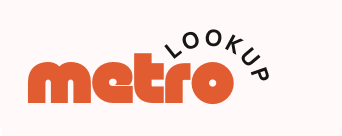The landscape of SEO keywords has evolved significantly from 2014 to 2024 due to advancements in technology, changes in user behavior, and algorithm updates by search engines like Google. Here’s a year-on-year analysis highlighting key trends:
2014: The Era of Exact Match Keywords
- Trend: SEO strategies heavily relied on exact match keywords.
- Search Behavior: Users typed simple and direct queries (e.g., “cheap flights to New York”).
- Google Algorithm Focus:
- Panda updates aimed at reducing low-quality content.
- Keyword stuffing was penalized.
- Content Style: Text-heavy, with repetitive use of exact keywords.
2015: The Rise of Semantic Search
- Trend: Introduction of Latent Semantic Indexing (LSI) by Google.
- Search Behavior: Users started to phrase queries more conversationally (e.g., “best ways to find cheap flights”).
- Google Algorithm Focus:
- RankBrain began interpreting the intent behind queries.
- Content Style: Focus on synonyms and related terms rather than repeating exact keywords.
2016: Mobile Optimization and Voice Search
- Trend: Surge in mobile and voice search due to the proliferation of smartphones and assistants like Siri and Alexa.
- Search Behavior: Queries became more conversational and long-tail (e.g., “What’s the cheapest way to fly to New York?”).
- Google Algorithm Focus:
- Mobile-first indexing.
- Keywords evolved to align with natural language processing (NLP).
- Content Style: Optimized for mobile readability and voice searches.
2017: Featured Snippets Dominate
- Trend: Focus shifted to position zero (featured snippets).
- Search Behavior: Queries became more question-based (e.g., “How to save money on flights?”).
- Google Algorithm Focus:
- Increased importance of structured data and rich snippets.
- Content Style: Short, concise answers optimized for snippets.
2018: E-A-T Principles Emerge
- Trend: Emphasis on Expertise, Authoritativeness, and Trustworthiness (E-A-T).
- Search Behavior: Users trusted authoritative sources for queries.
- Google Algorithm Focus:
- Content quality mattered more than keyword density.
- Queries related to health, finance, and education emphasized accuracy.
- Content Style: Informative, with clear authorship and citations.
2019: Intent-Based Optimization
- Trend: Shift from keyword targeting to search intent targeting.
- Search Behavior: Users sought actionable content for different intents (navigational, informational, transactional).
- Google Algorithm Focus:
- BERT update improved Google’s understanding of context.
- Content Style: Keywords were grouped by topic clusters rather than isolated.
2020: Pandemic-Driven Shifts
- Trend: Surge in keywords related to health, online learning, remote work, and e-commerce.
- Search Behavior: Queries about “how-to” and “best [products]” rose (e.g., “best laptops for remote work”).
- Google Algorithm Focus:
- Core Web Vitals emphasized user experience.
- Content Style: Keyword focus included empathy-driven content addressing user concerns.
2021: Video and Visual Search
- Trend: Keywords for visual and video content gained traction.
- Search Behavior: Users increasingly searched on platforms like YouTube with phrases like “how to bake a cake video.”
- Google Algorithm Focus:
- Video indexing and the growth of image search optimization.
- Content Style: Keywords optimized for visual and video formats.
2022: AI-Driven Personalization
- Trend: Growth in AI tools (e.g., ChatGPT) changed keyword strategies.
- Search Behavior: Queries became more dynamic and contextual (e.g., “best chatbots for customer support 2022”).
- Google Algorithm Focus:
- AI-powered algorithms personalized search results.
- Content Style: Emphasis on interactive content and dynamic keywords.
2023: People Also Ask (PAA) and Hyperlocal Search
- Trend: Expansion of People Also Ask sections.
- Search Behavior: Users relied on question-based keywords (e.g., “What is the best strategy for SEO in 2023?”).
- Google Algorithm Focus:
- Hyperlocal search relevance due to increasing mobile use.
- Content Style: FAQs integrated into content to capture PAA results.
2024: Conversational AI and Zero-Click Searches
- Trend: Growth in zero-click searches and AI-driven conversational search.
- Search Behavior: Users interacted more with AI assistants and featured snippets, reducing clicks.
- Google Algorithm Focus:
- Generative AI results influenced keyword structures.
- Content Style: Focus on contextual relevance and semantic keywords.
Summary Table of Keyword Trends (2014–2024)
This evolution showcases a clear trend: keywords have moved from being isolated strings to intent-driven and context-aware strategies.
| Year | Keyword Focus | Search Behavior | Google Updates |
|---|
| 2014 | Exact match keywords | Simple, direct queries | Panda updates |
| 2016 | Long-tail, mobile-friendly | Conversational, voice search queries | Mobile-first indexing |
| 2017 | Featured snippets | Question-based | Structured data prioritization |
| 2019 | Search intent optimization | Intent-driven | BERT update |
| 2020 | Pandemic-driven keywords | Health, remote work | Core Web Vitals |
| 2022 | AI keywords | Dynamic, contextual | AI-driven personalization |
| 2024 | Semantic, zero-click | Conversational, AI-integrated | Generative AI influences |






